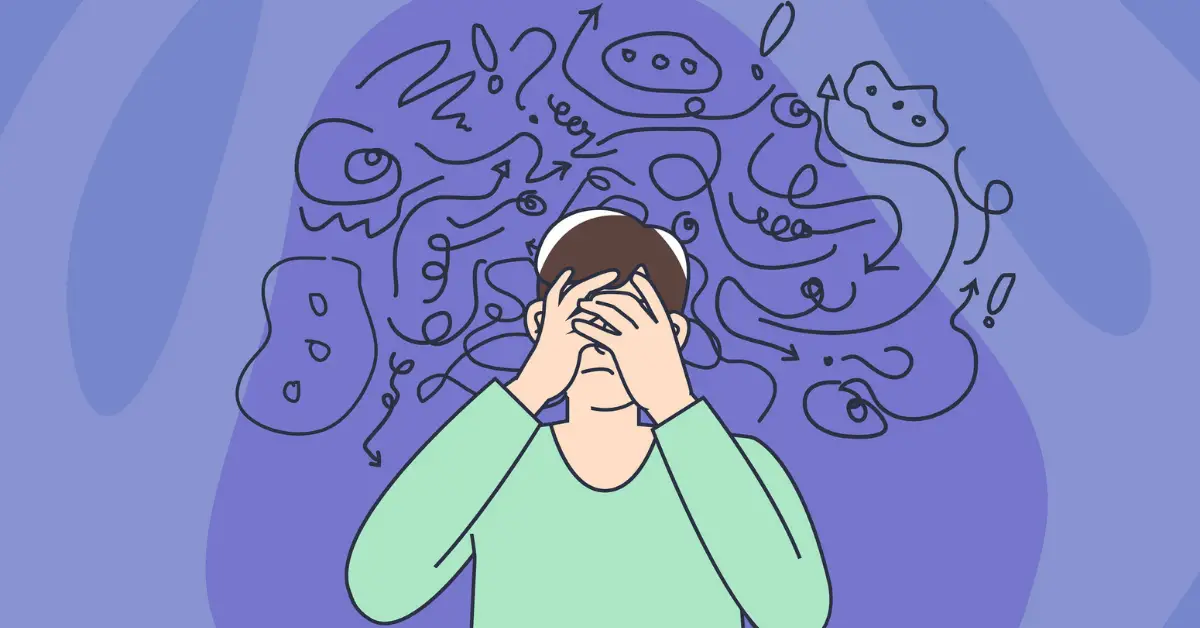Human diseases appear to progress more quickly in stressful situations, and studies show we are better able to fight disease, pain, infection, or illness when we are not constantly worried. (1)
Chronic stress has been linked to an increased risk of heart disease, weight gain, digestive issues, headaches, muscle pain, and, of course, mental health issues such as anxiety and depression. (1)
Many people exposed to constant or high stress live in states of chronic anxiety. They do not realize they are dealing with this until an occurrence such as an ailment or illness arrives in their bodies. (4)
These health warnings sometimes last for days, weeks, or even months until the person feels burnt out or rundown, leading to even more anxiety.
If we know that the habituation of stress will wear down our immune system’s functioning – therefore eliminating our ability to maintain health – we can be guarded against this.
Research is showing that if we recondition our responses to stress, thereby strengthening our immunity. A healthy state of being in our vital organs can be supported. (1)
Stress Depletes Our Immune System And Vitality
During animal experiments in the early 1980s, scientists discovered a link between stress and immune system strength. When they began observing medical students, the experiments quickly progressed to humans. They discovered that around exam time, students’ immunity dropped, as did their levels of T-cells, which are some of the immune system‘s most important weapons in the fight against infection. (2)
Another 2018 study published in Frontiers in Immunology demonstrated the impact of stress on the immune system by inducing stress and cancerous tumor growth in mice, some of whom were also given an antidepressant. The results revealed a significant difference. The mice given antidepressants had significantly lower cancer progression than those who were not. (4)
While it’s possible that antidepressants have cancer-fighting mechanisms, the researchers concluded that the antidepressant’s ability to reduce psychological distress is what likely restored antitumor immunity. (4)
Even more recently researchers have discovered that nerve signals produced in response to stress can prevent immune cells from fighting pathogens or tumors effectively. (3)
In 2021, a mouse-based study led by Professor Scott Mueller, Laboratory Head at the Peter Doherty Institute for Infection and Immunity, made the discovery that immune cells stopped moving in response to stress. (3)

“This explains at least in part the widely observed relationship between stress and impaired immunity,” Mueller concluded of the study.
He also stated “It’s difficult to study what kind of stress signals could induce the immune cells to stop – is it a sudden shock? Or chronic psychological stress?”
Although it’s obvious that our immune systems are at their best when we’re not beset with high levels of stress hormones pumping through our veins, Mueller plans to carry on researching the mechanisms of this process.
In addition, recent findings will be used to test if immune responses to cancer are suppressed by sympathetic nervous system stress signals, and, if this can be used to boost anti-cancer responses in patients. (3)
External Conditions
Stress psychosomatic medicine experts research every year if we transform our very biology to enable healing within our immune systems by staying calm. (4)
Meanwhile, there is a lot we can do for ourselves to prevent stress, and hopefully boost our immune system at the same time. We can be aware of potential stressors to look out for and avoid in our daily lives.
Dr. Nandi’s Calming The Chaos is a FREE 7-day guide that helps you release feelings of anxiety and tension – especially those which may be keeping you from living a full, vibrant, and active life.
In general, stress can be divided into two categories: psychological stress and physical stress (also known as physicochemical stress). (1,5)
Physical stress is caused by environmental factors such as air pollution, poor nutrition, or exhaustion. Physiological stress is caused by worrying about something (whether it’s money or a certain person). (1,5)
Further examples of psychological stress triggers include:
- Relationship conflicts.
- Work demands.
- Increased responsibility.
- Grief.
- Trauma.
- Accidents.
- Exposure to violence.
- A move to a new location.
- Divorce and infidelity.
And further examples of physical stress or physicochemical stress include:
- Poor food/nutrition choices.
- Exposure to toxins.
- Metabolic disorders in the body.
- Infection.
- Inflammation in the body. (6)
Immune-Systems When Stressed
Long-term and chronic stress raises our cortisol and corticosteroid levels, causing cortisol resistance and impaired anti-inflammatory effects on the immune system.
Infection, inflammatory autoimmune diseases, or cancers, as well as other physiological disorders, are the result of such effects. (6)
Chronic stress also goes on to prevent immune cells and signaling networks from communicating with one another. (6)
All of this killer activity for our healthy cells damages and weakens our immune systems. How do we know when our immune systems are starting to be affected by stress? (6)
Common symptoms include:
- Diarrhea or constipation.
- Frequent aches and pains.
- Lack of energy or focus.
- Sexual problems.
- Stiff jaw or neck.
- Tiredness.
- Trouble sleeping or sleeping too much.
- Upset stomach.
- Use of alcohol or drugs to relax.
- Weight loss or gain.
- Headaches.
- Forgetfulness. (7)

Strong Immunity For Less Disease
Lots of issues and illnesses related to a dysfunctional immune system can occur when the complex systems that run through our bodies are compromised.
Nurturance has a lot to do with the health of our bodies, and there is a lot we can do to avoid stress which leads to illness.
If stress management is challenging for you it’s likely your adrenals are impacted creating an even more vicious cycle. I recommend my patients supplement with my Adrenal Support, to calm their nerves and balance the fight or flight reaction the body has to stress limiting the overall cortisol production. This will help reset the system allowing for you to add lifestyle changes such as medication or exercise to help you retrain your body to deal with stress in a healthy way.
If you would like to question the relationship of how different parts of your body bounce back after a stress response, or if you would like to learn more about stress prevention techniques Calming The Chaos meditation journey is a place to start.
Continually studying how stress and immunity is linked, means we can always have the correct tools at hand to be able to regulate our internal states.
We can then release the potential energy locked up in our fears and anxieties, enabling us to live our lives more fully.

- https://www.discovermagazine.com/health/what-stress-does-to-the-immune-system?
- https://www.apa.org/research/action/immune
- https://about.unimelb.edu.au/newsroom/news/2021/april/how-stress-can-stop-immune-cells-in-their-tracks
- https://www.frontiersin.org/articles/10.3389/fimmu.2018.01341/full
- https://www.healthline.com/health/psychological-stress
- https://www.frontiersin.org/articles/10.3389/fimmu.2019.00245/full
- https://medlineplus.gov/ency/article/003211.htm#:~:text=Stress%20is%20a%20feeling%20of,danger%20or%20meet%20a%20deadline.




















